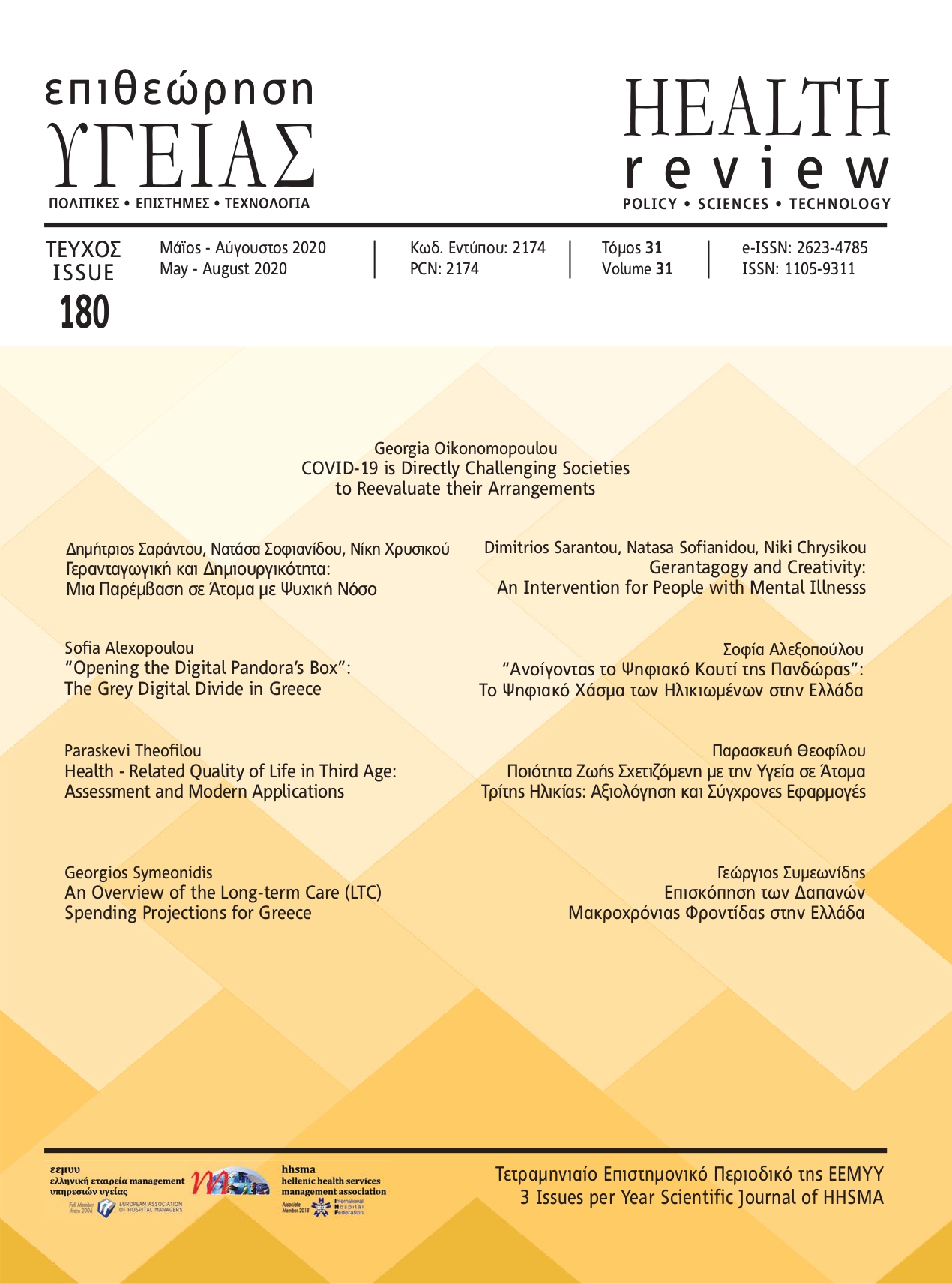Abstract
Age-related spending has spawned great interest in Academia and policy-makers alike as the demographic effect leaves no space for additional fiscal burden. The European Commission, under the Aging Working Group, has been monitoring age-related spending for a few decades and provides insight and results of each Member State and the European and Euro-area averages.
The five components of age-related spending, namely Pensions, Health, Long-term care, Unemployment and Education, are not of the same fiscal weight. Pensions and Health have already been in the limelight for quite a long time now, however the long-term care is slowly but surely becoming a point of interest because of Aging. People live longer and better and this means – among other things – they will need additional help to cope with disease which was previously terminal, but can now be treated. Respectively, for age-related incidents which tend to become more acute as people reach the expected life limit or – hopefully – exceed it.
This paper aims to analyze the data for long-term care as reported to the Aging Working Group in the last four projection rounds, compare and contrast them and provide reasons for the important inconsistencies spotted in the former. As long-term care in Greece has shifted partly from the Local government to the General government and vice versa, proper data reporting and collection has not yet been up to international standards.
